Company Details
porsche
7,032
362,768
3361
porsche.com
15
POR_2839247
Completed
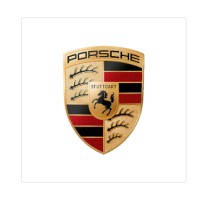
Porsche Cars North America Company CyberSecurity Posture
porsche.comAt Porsche Cars North America, we thrive on a foundation of precision engineering fueled by the American entrepreneurial spirit; we carry on the vision of our founder, Ferry Porsche, by delivering impassioned experiences as legendary as the cars we build, and we do it every day. We are fueling Porsche Passion as an unprecedented brand built on the idea that we are better together as a diverse and gifted workforce united in the desire to be the world’s most aspirational brand and most empowering employer. As an extension of the Porsche family, each of our team members brings a unique perspective and master craft to our workforce. We boast the brightest engineers, brand builders and marketing minds, business development leaders, analytical aficionados and corporate professionals in the automotive business – not because we want to lead our industry in performance and customer satisfaction, but because we do.
Company Details
porsche
7,032
362,768
3361
porsche.com
15
POR_2839247
Completed
Between 800 and 849

 PCNA Global Score (TPRM)
PCNA Global Score (TPRM)XXXX

Description: Porsche is discontinuing its best-selling **Macan ICE (Internal Combustion Engine) SUV in Europe from mid-2024** due to **non-compliance with the UNECE WP.29 cybersecurity regulations (UN Regulation No. 155)**, which mandate stricter cybersecurity standards for new vehicles. The existing Macan’s electronic architecture lacks the necessary safeguards against **potential cyber threats, malfunctions, or electronic system failures** that could compromise vehicle safety. Retrofitting the model to meet these requirements was deemed **financially unviable** due to the extensive overhaul needed for its control units and cybersecurity management systems. While the decision aligns with Porsche’s broader **electrification strategy**, the immediate impact includes **lost sales revenue in Europe**, reputational risk from discontinuing a flagship model, and operational disruptions in supply chains. The move also signals a **strategic shift away from ICE vehicles** in regulated markets, forcing Porsche to accelerate its EV transition. Though the Macan ICE remains available in other regions (e.g., U.S., UK, Canada), its long-term viability is uncertain if similar cybersecurity mandates expand globally.


No incidents recorded for Porsche Cars North America in 2025.
No incidents recorded for Porsche Cars North America in 2025.
No incidents recorded for Porsche Cars North America in 2025.
PCNA cyber incidents detection timeline including parent company and subsidiaries

At Porsche Cars North America, we thrive on a foundation of precision engineering fueled by the American entrepreneurial spirit; we carry on the vision of our founder, Ferry Porsche, by delivering impassioned experiences as legendary as the cars we build, and we do it every day. We are fueling Porsche Passion as an unprecedented brand built on the idea that we are better together as a diverse and gifted workforce united in the desire to be the world’s most aspirational brand and most empowering employer. As an extension of the Porsche family, each of our team members brings a unique perspective and master craft to our workforce. We boast the brightest engineers, brand builders and marketing minds, business development leaders, analytical aficionados and corporate professionals in the automotive business – not because we want to lead our industry in performance and customer satisfaction, but because we do.

#WeAreProgress ++ Progress is in our DNA. It’s not just in our cars, but also in us. The focus at Audi is on us – the people – and we are shaping the future of mobility together. With our inner drive. With the aim to continuously improve. With our mindset, courage and confidence. Because progress de
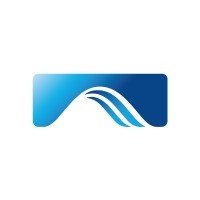
Freudenberg is a global technology group that strengthens its customers and society long-term through forward-looking innovations. Together with its partners, customers and research institutions, the Freudenberg Group develops leading-edge technologies and excellent products and services for about 4
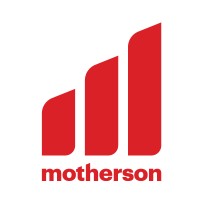
Founded in 1975, Motherson is one of the world’s leading auto component makers, supplying OEMs globally from over 400 facilities in 44 countries spread across five continents with over 190,000 employees. Within the automotive industry, it is one of the leading global manufacturers of exterior rear
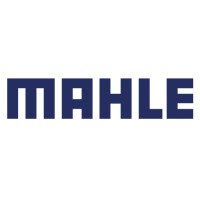
MAHLE is a leading international development partner and supplier to the automotive industry with customers in both passenger car and commercial vehicle sectors. Founded in 1920, the technology group is working on the climate-neutral mobility of tomorrow, with a focus on the strategic areas of elect

A USD 19.4 billion multinational group based in Mumbai, India, Mahindra provides employment opportunities to over 256,000 people across 100 countries. Mahindra operates in the key industries that drive economic growth, enjoying a leadership position in tractors, utility vehicles, information technol
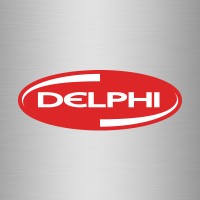
Delphi Product & Service Solutions is Delphi’s aftermarket channel. In the aftermarket, our technologies cover every aspect of today’s vehicles, from brakes to steering, air conditioning to ignition, engine management to fuel systems — whether the vehicle is a hybrid, or powered by gasoline or diese
Established in 1995, BYD is a top high-tech enterprise in China specializing in IT, automobile, and new energy.BYD is the largest supplier of rechargeable batteries in the globe, and has the largest market share for Nickel-cadmium batteries, handset Li-ion batteries, cell-phone chargers and keypads
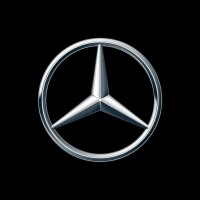
Mercedes-Benz USA, LLC (MBUSA), a Daimler Company, is responsible for the Distribution and Marketing of Mercedes-Benz and smart products in the United States. MBUSA was founded in 1965 and prior to that Mercedes-Benz cars were sold in the United States by Mercedes-Benz Car Sales, Inc., a subsidiary
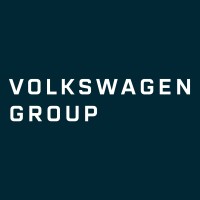
The Volkswagen Group with its headquarters in Wolfsburg is one of the world’s leading automobile manufacturers and the largest carmaker in Europe. The Group is made up of ten brands from seven European countries: Volkswagen, Volkswagen Nutzfahrzeuge, ŠKODA, SEAT, CUPRA, Audi, Lamborghini, Bentley, P
.png)
Grand National and Individualization Champion. Porsche Bend 1973 Porsche 911T, RSR Tribute. 2025 porsche classic restoration challenge.
German sports car and SUV maker's global sales fell 6% YoY, with 35% electrified (23% BEV, 12% PHEV); the Macan led with 64783 units,...
There's finally some good news for Porsche when it comes to its electric vehicles, with the electric Macan on track to finish the sales race...
AutoNation's new two-story Porsche facility in Newport Beach features concierge service, themed exhibits, and advanced configuration tools...
Porsche has significantly increased the proportion of electrified vehicles sold in the first nine months of 2025. The details.
Porsche owners to have access to 23,500 Tesla Superchargers, Porsche Cars North America says. Published on 09/05/2025 at 11:34 am EDT. Reuters.
Porsche has closed order books for the gasoline sports cars as it prepares EV replacements.
If you didn't order the gas 718 of your dreams, you're too late.
According to a new report published in the Wall Street Journal, Porsche Automobil Holding SE, the largest shareholder of the sports car...

Explore insights on cybersecurity incidents, risk posture, and Rankiteo's assessments.
The official website of Porsche Cars North America is http://www.porscheusa.com.
According to Rankiteo, Porsche Cars North America’s AI-generated cybersecurity score is 804, reflecting their Good security posture.
According to Rankiteo, Porsche Cars North America currently holds 0 security badges, indicating that no recognized compliance certifications are currently verified for the organization.
According to Rankiteo, Porsche Cars North America is not certified under SOC 2 Type 1.
According to Rankiteo, Porsche Cars North America does not hold a SOC 2 Type 2 certification.
According to Rankiteo, Porsche Cars North America is not listed as GDPR compliant.
According to Rankiteo, Porsche Cars North America does not currently maintain PCI DSS compliance.
According to Rankiteo, Porsche Cars North America is not compliant with HIPAA regulations.
According to Rankiteo,Porsche Cars North America is not certified under ISO 27001, indicating the absence of a formally recognized information security management framework.
Porsche Cars North America operates primarily in the Motor Vehicle Manufacturing industry.
Porsche Cars North America employs approximately 7,032 people worldwide.
Porsche Cars North America presently has no subsidiaries across any sectors.
Porsche Cars North America’s official LinkedIn profile has approximately 362,768 followers.
Porsche Cars North America is classified under the NAICS code 3361, which corresponds to Motor Vehicle Manufacturing.
No, Porsche Cars North America does not have a profile on Crunchbase.
Yes, Porsche Cars North America maintains an official LinkedIn profile, which is actively utilized for branding and talent engagement, which can be accessed here: https://www.linkedin.com/company/porsche.
As of November 27, 2025, Rankiteo reports that Porsche Cars North America has experienced 1 cybersecurity incidents.
Porsche Cars North America has an estimated 12,402 peer or competitor companies worldwide.
Incident Types: The types of cybersecurity incidents that have occurred include Vulnerability.
Total Financial Loss: The total financial loss from these incidents is estimated to be $0.
Detection and Response: The company detects and responds to cybersecurity incidents through an containment measures with discontinuation of ice macan sales in europe; focus on all-electric macan as replacement, and remediation measures with development and launch of all-electric macan (2024) to comply with cybersecurity and emissions regulations, and recovery measures with continued sales of ice macan in non-eu markets (uk, u.s., canada, etc.), and communication strategy with public announcement via porsche newsroom and automotive media; emphasis on electrification strategy and sustainability goals..
Title: Discontinuation of Porsche Macan ICE in Europe Due to UNECE WP.29 Cybersecurity Regulations
Description: Porsche has decided to discontinue the sale of its internal combustion engine (ICE) Macan SUV in Europe starting mid-2024 due to non-compliance with the new UNECE WP.29 cybersecurity regulations (UN Regulation No. 155). The regulations mandate stricter cybersecurity standards for all new vehicles sold in the EU, including protection against hacking and electronic system malfunctions. Retrofitting the existing Macan to meet these standards was deemed cost-prohibitive, leading Porsche to focus on its all-electric Macan as a replacement in Europe. The ICE Macan will continue to be sold in other markets such as the UK, U.S., and Canada.
Date Publicly Disclosed: 2023-10-00
Type: Regulatory Non-Compliance (Cybersecurity)
Motivation: Regulatory compliance and strategic shift toward electrification
Common Attack Types: The most common types of attacks the company has faced is Vulnerability.

Financial Loss: Cost-prohibitive retrofitting expenses for cybersecurity compliance
Systems Affected: Vehicle control units and electronic architecture of Porsche Macan ICE
Operational Impact: Discontinuation of ICE Macan sales in Europe starting mid-2024; shift to all-electric Macan
Revenue Loss: Potential loss of sales revenue in Europe for ICE Macan
Brand Reputation Impact: Minimal (strategic alignment with electrification goals); potential short-term dissatisfaction among ICE enthusiasts
Average Financial Loss: The average financial loss per incident is $0.00.

Entity Name: Porsche AG
Entity Type: Automotive Manufacturer
Industry: Automotive
Location: Stuttgart, Germany (HQ); global operations
Size: Large (39,557 employees as of 2022)
Customers Affected: European customers seeking to purchase new ICE Macan models post-mid-2024

Containment Measures: Discontinuation of ICE Macan sales in Europe; focus on all-electric Macan as replacement
Remediation Measures: Development and launch of all-electric Macan (2024) to comply with cybersecurity and emissions regulations
Recovery Measures: Continued sales of ICE Macan in non-EU markets (UK, U.S., Canada, etc.)
Communication Strategy: Public announcement via Porsche Newsroom and automotive media; emphasis on electrification strategy and sustainability goals
Prevention of Data Exfiltration: The company takes the following measures to prevent data exfiltration: Development and launch of all-electric Macan (2024) to comply with cybersecurity and emissions regulations.
Handling of PII Incidents: The company handles incidents involving personally identifiable information (PII) through by discontinuation of ice macan sales in europe; focus on all-electric macan as replacement.
Data Recovery from Ransomware: The company recovers data encrypted by ransomware through Continued sales of ICE Macan in non-EU markets (UK, U.S., Canada, etc.).

Regulations Violated: UNECE WP.29 UN Regulation No. 155 (Cybersecurity for vehicles),
Regulatory Notifications: UNECE mandate effective July 1, 2024, for all new vehicles sold in the EU

Lessons Learned: Proactive compliance with emerging cybersecurity regulations is critical in the automotive industry, especially for vehicles with interconnected electronic systems. Early integration of cybersecurity standards in vehicle development can avoid costly retrofits and strategic pivots. The incident also highlights the broader industry shift toward electrification as a response to both environmental and regulatory pressures.

Recommendations: Automakers should prioritize cybersecurity in vehicle design phases to align with evolving regulations like UNECE WP.29., Invest in modular electronic architectures that can be updated to meet future cybersecurity standards without full retrofits., Accelerate electrification strategies to meet dual goals of emissions reduction and compliance with cybersecurity regulations., Monitor regulatory developments in key markets (e.g., potential adoption of UNECE WP.29 in the U.S. or UK) to anticipate similar compliance challenges.Automakers should prioritize cybersecurity in vehicle design phases to align with evolving regulations like UNECE WP.29., Invest in modular electronic architectures that can be updated to meet future cybersecurity standards without full retrofits., Accelerate electrification strategies to meet dual goals of emissions reduction and compliance with cybersecurity regulations., Monitor regulatory developments in key markets (e.g., potential adoption of UNECE WP.29 in the U.S. or UK) to anticipate similar compliance challenges.Automakers should prioritize cybersecurity in vehicle design phases to align with evolving regulations like UNECE WP.29., Invest in modular electronic architectures that can be updated to meet future cybersecurity standards without full retrofits., Accelerate electrification strategies to meet dual goals of emissions reduction and compliance with cybersecurity regulations., Monitor regulatory developments in key markets (e.g., potential adoption of UNECE WP.29 in the U.S. or UK) to anticipate similar compliance challenges.Automakers should prioritize cybersecurity in vehicle design phases to align with evolving regulations like UNECE WP.29., Invest in modular electronic architectures that can be updated to meet future cybersecurity standards without full retrofits., Accelerate electrification strategies to meet dual goals of emissions reduction and compliance with cybersecurity regulations., Monitor regulatory developments in key markets (e.g., potential adoption of UNECE WP.29 in the U.S. or UK) to anticipate similar compliance challenges.
Key Lessons Learned: The key lessons learned from past incidents are Proactive compliance with emerging cybersecurity regulations is critical in the automotive industry, especially for vehicles with interconnected electronic systems. Early integration of cybersecurity standards in vehicle development can avoid costly retrofits and strategic pivots. The incident also highlights the broader industry shift toward electrification as a response to both environmental and regulatory pressures.

Source: Porsche Newsroom

Source: Motolog Studio (Bhavik Sreenath)
Date Accessed: 2023-10-00

Source: UNECE WP.29 UN Regulation No. 155
Additional Resources: Stakeholders can find additional resources on cybersecurity best practices at and Source: Porsche Newsroom, and Source: Motolog Studio (Bhavik Sreenath)Date Accessed: 2023-10-00, and Source: UNECE WP.29 UN Regulation No. 155Url: https://unece.org/transport/regulations/un-regulation-no-155-cyber-security-and-cyber-security-management-system.

Investigation Status: Resolved (strategic decision made; no active investigation required)
Communication of Investigation Status: The company communicates the status of incident investigations to stakeholders through Public announcement via Porsche Newsroom and automotive media; emphasis on electrification strategy and sustainability goals.

Stakeholder Advisories: Porsche has communicated the discontinuation to dealers, customers, and investors, emphasizing the transition to the all-electric Macan and broader electrification goals.
Customer Advisories: European customers were advised to purchase the ICE Macan before mid-2024 or consider the all-electric Macan as an alternative. Porsche highlighted the performance and sustainability benefits of the electric model.
Advisories Provided: The company provides the following advisories to stakeholders and customers following an incident: were Porsche has communicated the discontinuation to dealers, customers, and investors, emphasizing the transition to the all-electric Macan and broader electrification goals. and European customers were advised to purchase the ICE Macan before mid-2024 or consider the all-electric Macan as an alternative. Porsche highlighted the performance and sustainability benefits of the electric model..

Root Causes: Development Of The Ice Macan Predated The Finalization Of Unece Wp.29 Cybersecurity Requirements, Leading To Non-Compliance., High Cost And Complexity Of Retrofitting The Vehicle'S Electronic Architecture To Meet Cybersecurity Standards., Strategic Prioritization Of Electrification Over Ice Model Updates In Europe.,
Corrective Actions: Discontinuation Of Ice Macan In Europe And Replacement With All-Electric Macan (2024)., Continued Sales Of Ice Macan In Markets Without Unece Wp.29 Regulations (E.G., U.S., Uk, Canada)., Integration Of Cybersecurity Standards In The Development Of New Models, Including The Electric Macan.,
Corrective Actions Taken: The company has taken the following corrective actions based on post-incident analysis: Discontinuation Of Ice Macan In Europe And Replacement With All-Electric Macan (2024)., Continued Sales Of Ice Macan In Markets Without Unece Wp.29 Regulations (E.G., U.S., Uk, Canada)., Integration Of Cybersecurity Standards In The Development Of New Models, Including The Electric Macan., .
Most Recent Incident Publicly Disclosed: The most recent incident publicly disclosed was on 2023-10-00.
Highest Financial Loss: The highest financial loss from an incident was Cost-prohibitive retrofitting expenses for cybersecurity compliance.
Containment Measures in Most Recent Incident: The containment measures taken in the most recent incident was Discontinuation of ICE Macan sales in Europe; focus on all-electric Macan as replacement.
Most Significant Lesson Learned: The most significant lesson learned from past incidents was Proactive compliance with emerging cybersecurity regulations is critical in the automotive industry, especially for vehicles with interconnected electronic systems. Early integration of cybersecurity standards in vehicle development can avoid costly retrofits and strategic pivots. The incident also highlights the broader industry shift toward electrification as a response to both environmental and regulatory pressures.
Most Significant Recommendation Implemented: The most significant recommendation implemented to improve cybersecurity was Accelerate electrification strategies to meet dual goals of emissions reduction and compliance with cybersecurity regulations., Invest in modular electronic architectures that can be updated to meet future cybersecurity standards without full retrofits., Automakers should prioritize cybersecurity in vehicle design phases to align with evolving regulations like UNECE WP.29., Monitor regulatory developments in key markets (e.g. and potential adoption of UNECE WP.29 in the U.S. or UK) to anticipate similar compliance challenges..
Most Recent Source: The most recent source of information about an incident are UNECE WP.29 UN Regulation No. 155, Porsche Newsroom and Motolog Studio (Bhavik Sreenath).
Most Recent URL for Additional Resources: The most recent URL for additional resources on cybersecurity best practices is https://unece.org/transport/regulations/un-regulation-no-155-cyber-security-and-cyber-security-management-system .
Current Status of Most Recent Investigation: The current status of the most recent investigation is Resolved (strategic decision made; no active investigation required).
Most Recent Stakeholder Advisory: The most recent stakeholder advisory issued was Porsche has communicated the discontinuation to dealers, customers, and investors, emphasizing the transition to the all-electric Macan and broader electrification goals., .
Most Recent Customer Advisory: The most recent customer advisory issued was an European customers were advised to purchase the ICE Macan before mid-2024 or consider the all-electric Macan as an alternative. Porsche highlighted the performance and sustainability benefits of the electric model.
.png)
Angular is a development platform for building mobile and desktop web applications using TypeScript/JavaScript and other languages. Prior to versions 19.2.16, 20.3.14, and 21.0.1, there is a XSRF token leakage via protocol-relative URLs in angular HTTP clients. The vulnerability is a Credential Leak by App Logic that leads to the unauthorized disclosure of the Cross-Site Request Forgery (XSRF) token to an attacker-controlled domain. Angular's HttpClient has a built-in XSRF protection mechanism that works by checking if a request URL starts with a protocol (http:// or https://) to determine if it is cross-origin. If the URL starts with protocol-relative URL (//), it is incorrectly treated as a same-origin request, and the XSRF token is automatically added to the X-XSRF-TOKEN header. This issue has been patched in versions 19.2.16, 20.3.14, and 21.0.1. A workaround for this issue involves avoiding using protocol-relative URLs (URLs starting with //) in HttpClient requests. All backend communication URLs should be hardcoded as relative paths (starting with a single /) or fully qualified, trusted absolute URLs.
Forge (also called `node-forge`) is a native implementation of Transport Layer Security in JavaScript. An Uncontrolled Recursion vulnerability in node-forge versions 1.3.1 and below enables remote, unauthenticated attackers to craft deep ASN.1 structures that trigger unbounded recursive parsing. This leads to a Denial-of-Service (DoS) via stack exhaustion when parsing untrusted DER inputs. This issue has been patched in version 1.3.2.
Forge (also called `node-forge`) is a native implementation of Transport Layer Security in JavaScript. An Integer Overflow vulnerability in node-forge versions 1.3.1 and below enables remote, unauthenticated attackers to craft ASN.1 structures containing OIDs with oversized arcs. These arcs may be decoded as smaller, trusted OIDs due to 32-bit bitwise truncation, enabling the bypass of downstream OID-based security decisions. This issue has been patched in version 1.3.2.
Suricata is a network IDS, IPS and NSM engine developed by the OISF (Open Information Security Foundation) and the Suricata community. Prior to versions 7.0.13 and 8.0.2, working with large buffers in Lua scripts can lead to a stack overflow. Users of Lua rules and output scripts may be affected when working with large buffers. This includes a rule passing a large buffer to a Lua script. This issue has been patched in versions 7.0.13 and 8.0.2. A workaround for this issue involves disabling Lua rules and output scripts, or making sure limits, such as stream.depth.reassembly and HTTP response body limits (response-body-limit), are set to less than half the stack size.
Suricata is a network IDS, IPS and NSM engine developed by the OISF (Open Information Security Foundation) and the Suricata community. In versions from 8.0.0 to before 8.0.2, a NULL dereference can occur when the entropy keyword is used in conjunction with base64_data. This issue has been patched in version 8.0.2. A workaround involves disabling rules that use entropy in conjunction with base64_data.

Get company history
















Every week, Rankiteo analyzes billions of signals to give organizations a sharper, faster view of emerging risks. With deeper, more actionable intelligence at their fingertips, security teams can outpace threat actors, respond instantly to Zero-Day attacks, and dramatically shrink their risk exposure window.
Identify exposed access points, detect misconfigured SSL certificates, and uncover vulnerabilities across the network infrastructure.
Gain visibility into the software components used within an organization to detect vulnerabilities, manage risk, and ensure supply chain security.
Monitor and manage all IT assets and their configurations to ensure accurate, real-time visibility across the company's technology environment.
Leverage real-time insights on active threats, malware campaigns, and emerging vulnerabilities to proactively defend against evolving cyberattacks.




